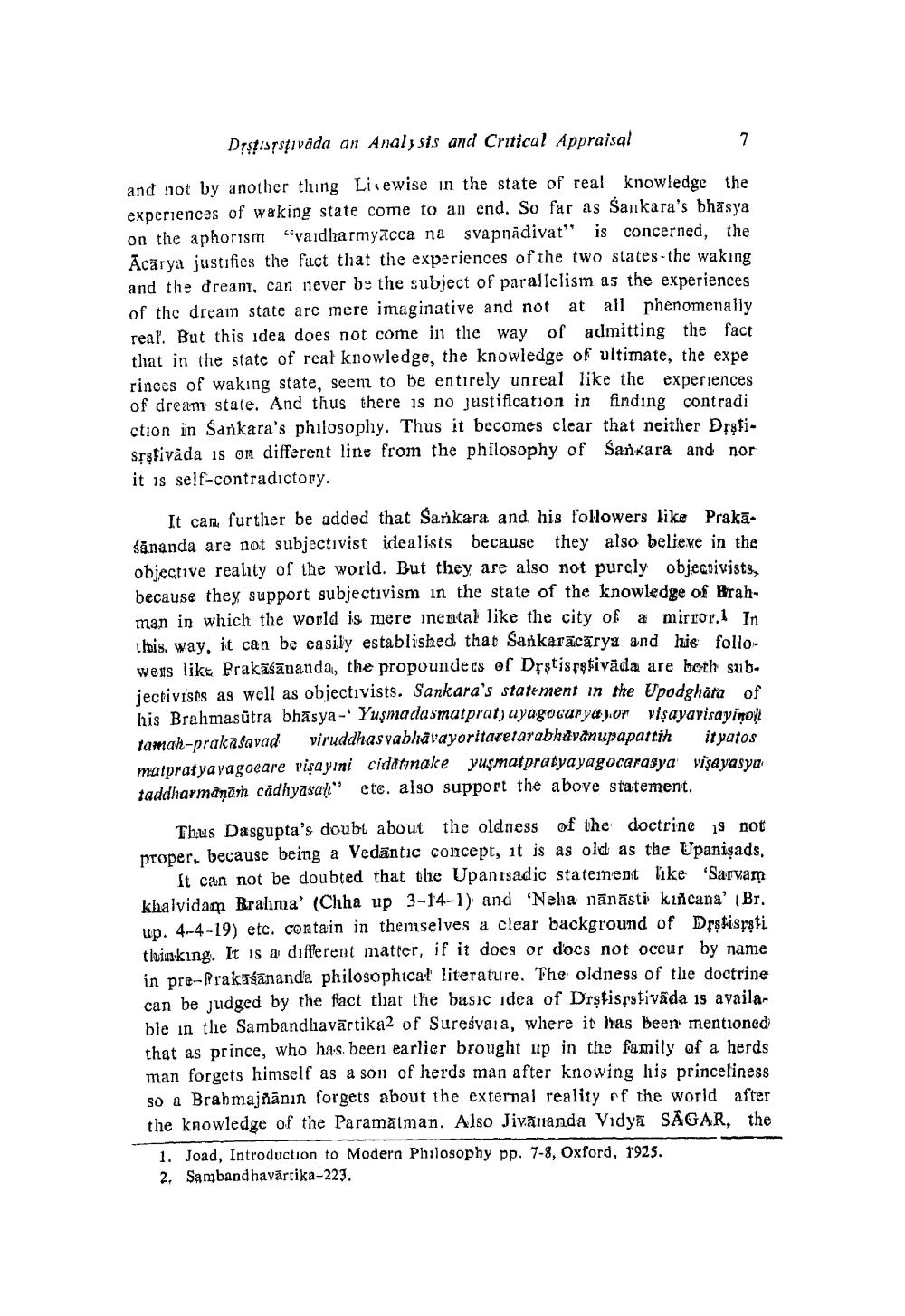________________
Dististsgivada an Anal, sis and Critical Appraisal
and not by another thing Likewise in the state of real knowledge the experiences of waking state come to an end. So far as Sankara's bhasya on the aphorism "vaidlarmyacca na svapnädivat" is concerned, the Ācārya justifies the fact that the experiences of the two states-the waking and the dream, can never be the subject of parallelism as the experiences of the dream state are mere imaginative and not at all phenomenally real. But this idea does not come in the way of admitting the fact that in the state of real knowledge, the knowledge of ultimate, the expe rinces of waking state, seem to be entirely unreal like the experiences of dreamı state. And thus there is no justification in finding contradi ction in Sankara's philosophy. Thus it becomes clear that neither Drşfisrşivada is on different line from the philosophy of Sankara and nor it is self-contradictory.
It can further be added that Sankara and his followers like Praka. šānanda are not subjectivist idealists because they also believe in the objective reality of the world. But they are also not purely objectivists, because they support subjectivism in the state of the knowledge of Brahman in which the world is mere inental like the city of a mirror.1 In this way, it can be easily established that Sankarācārya and his followers like Prakāśānanda, the propounders of Drştisrstivāda are both subjectivists as well as objectivists. Sankara's statement in the Upodghäta of his Brahmasūtra bhasya - Yuşmadasmatprat) ayagogarya.or vişayavisavinot tamal-prakaśavad viruddhasvabhavayoritaxetarabhāvanupapartih it yatos matprat yavagoeare vişayini cidatmake yuşmatpratyayagocarasya visayasya taddharmaņām cadhyasah" ete. also support the above statement.
Thus Dasgupta's doubt about the oldness of the doctrine is not proper, because being a Vedantic concept, it is as old as the Upanisads.
It can not be doubted that the Upanisadic statement like 'Sarvam khalyidam Brahima' (Chha up 3-14-1) and 'Neha nānāsti kencana' Br. up. 4-4-19) etc. contain in themselves a clear background of Dșstisysti. tlainking. It is a different matter, if it does or does not occur by name in pre-Prakasānanda philosophical literature. The oldness of tlie doctrine can be judged by the fact that the basic idea of Drştisrstivāda is available in the Sambandhavārtika2 of Sureśvara, where it has been mentioned that as prince, who has been earlier brought up in the family of a herds man forgets himself as a son of herds man after knowing his princeliness so a Brabmajñānın forgets about the external reality of the world after the knowledge of the Paramalman. Also Jivananda Vidya SAGAR, the 1. Joad, Introduction to Modern Philosophy pp. 7-8, Oxford, 1925. 2. Samband havārtika-223.




